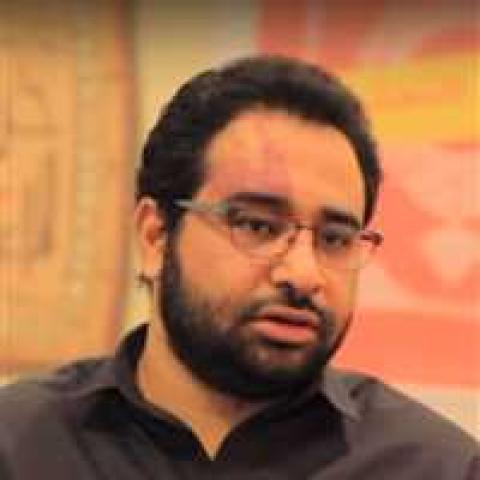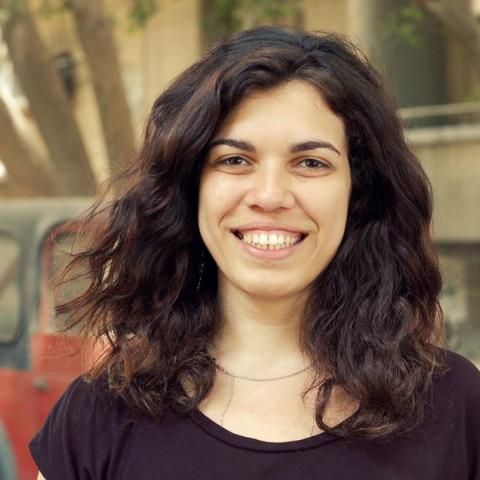Nearly three decades into the launching of the Conferences of the Parties (COP) to combat climate change within the UN framework, in Sharm el-Sheikh, developed countries finally recognized their historical responsibility for the losses and damages inflicted on the developing world and poor countries due to the pollution they caused and are still causing since the industrial revolution.
Originally published on The Tahrir Institute for Middle East Policy
By the end of the current decade, a full century will have passed since the Egyptian state began to reluctantly admit the existence of adherents of the Baha’i Faith in Egypt. Nonetheless, the fundamental rights of Baha’i Egyptians are still stuck at their very same starting point as they were a century ago.
*Originally published on The Tahrir Institute for Middle East Policy
If I ever decide to celebrate Halloween, I’ll stick it on my cheek — that small device, unfamiliar to many — to evoke its magical powers of moving upward with a fluidity unseen by others. The IUD is a medically tested device with proven efficiency, but still, I’ve long had an inexplicable fear of it. Its reputation has improved in recent years, but the IUD is still surrounded by myth and superstition. As one strand of the myth goes, “it can wander up to the heart and the brain.” There are a few other rumors about it, of varying details but equal horror.
In a data collection setting in Cairo, I asked a nurse if any woman could walk into a healthcare unit to get contraceptives, she nodded affirmatively. A perplexed pause, then I asked her about the requirements; she explained that the husband’s ID is required to open a family file at the local healthcare unit. Then it made sense, the healthcare system does not see unmarried women as contraceptive users. All the awareness messaging uplifting access barriers to contraceptives mean to target married women.
Since the beginning of 2021, came under spotlight Egypt’s senate and parliament discussions around a bill amending some provisions of the Penal Code toughening penalties for female genital mutilation (FGM). Some of those discussions that infiltrated the media provoked a 90’s nostalgia, in which the majority of members asserted the need for more punitive reactions to a never-dying practice while debating the vitality of the cutting and the cultural and religious reasoning maintaining this harmful practice.
Since the beginning of the crisis, saving lives has relied on rapid and effective government intervention and the temporary restrictions on certain rights, including freedoms of religion, belief, and assembly. These legitimate restrictions are supported based on public health-related grounds. In this context, Article 18 of the International Covenant on Civil and Political Rights states, “The right to freedom of thought, conscience and religion… is far-reaching and profound; it encompasses freedom of thought on all matters, personal conviction and the commitment/or not to religion or belief.”
Population and development have historically been intertwined. For decades, economic growth and family size have been viewed as two sides of a single equation. Population policies and strategies are typically statistic-heavy, number-focused documents until initiatives from feminists and women’s rights groups introduced human rights principles to these endeavors (Samir, 2020). As Egypt’s population topped 100 million this year, the state is seeking to reduce the total fertility rate (TFR), which currently stands at 3.5.
As usual, discussions related to organizing religious affairs in Egypt occupy a significant part of public debate at times of various crises and developments. As soon as the Egyptian government began to impose partial closures to confront the Covid-19 pandemic, controversy erupted over decisions to close places of worship and prevent religious gatherings at the time of approaching important religious occasions for both Muslims and Christians. This becomes a fertile ground for settling political scores and faith one-upmanship between multiple parties in a scene that is not alien to the public discourse in Egypt.
Calls for banning the niqab (the full face veil) in public places and state institutions in Egypt have recently re-emerged, gaining momentum after the High Administrative Court rendered a final judgment this past January rejecting the appeal of 80 niqab-wearing researchers at Cairo University and upholding the university’s decision to ban niqab for staff members during lectures.








